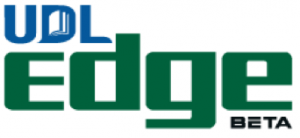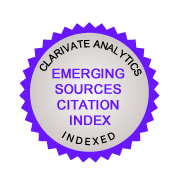LIMITED DELEGATION AND FIRM CONTROL: A PRINCIPAL-AGENT ACCOUNT OF SOUTHERN AFRICAN DEVELOPMENT COMMUNITY (SADC) DECISION-MAKING ON ZIMBABWE’S LAND ISSUE
DOI:
https://doi.org/10.32890/jis2021.17.7Keywords:
Principal-agent, delegation, decision-making, Southern African Development Community (SADC), ZimbabweAbstract
This paper accounts for Southern African Development Community (SADC) decision-making on Zimbabwe’s land issue from the year 2000 onwards. Guided by the principal-agent model, this paper argues that the delegation and control dynamics emerging from SADC’s principal-agent institutional structure and relationships shaped the regional organisation’s (RO’s) decisions on Zimbabwe’s land issue. This study adopted a qualitative methodology to explore this proposition utilising both primary and secondary sources of data. Primary data were collected through semi-structured key informant interviews and official documents such as SADC communiqués, while secondary data were gathered from published books, journal articles, newspaper articles and other related materials. Thematic analysis was the method used to analyse the data. The findings revealed that the member states (principal) limited the delegation of decision-making uthority to the SADC (agent) and the principal’s firm control of the agent were key factors shaping SADC outcomes on Zimbabwe’s land issue. These principal-agent dynamics enabled member states to control SADC’s decisions on Zimbabwe’s land issue. Conversely, there was also opportunistic agent behaviour that resulted in decisions
that injured the principal’s interests. Such decisions included the Tribunal’s fateful ruling on Zimbabwe’s land reform programme. Overall, this paper contributes to the existing body of knowledge by re-contextualising the principal-agent model in a new setting, which is SADC decision-making on Zimbabwe’s land issue.
References
Alter, K. J. (2006). Delegation to international courts and the limits of re-contracting political power. In: Hawkins, D.G., Lake, D.A., Nielson, D.L. and Tierney, M.J. (eds) Delegation and agency in international organizations, Cambridge: Cambridge University Press.312-38.
Asmelash, H. B. (2016). Southern African Development Community (SADC) Tribunal. Max Planck Institute Luxembourg.
Bachrach, P., & Baratz, M. S. (1962). Two faces of power. American political science review, 56(4), 947-952.
Bachrach, P. & Baratz, M. S. (1963). Decisions and Nondecisions: An Analytical Framework. In The American Political Science Review, Vol. 57, No. 3 (Sep.), pp. 632-642. Published by: American Political Science Association Stable URL: https://www.jstor.org/stable/1952568Accessed: 05-08-2018 09:10 UTC
Brandsma, G. J., & Adriaensen, J. (2017). The principal–agent model, accountability and democratic legitimacy. In The principal agent model and the European Union (pp. 35-54). Palgrave Macmillan, Cham.
Cawthra, G. (2010). The Role of SADC in Managing political crisis and conflict:The Cases of Madagascar and Zimbabwe, Peace and Security Series, Friedrich-Ebert-Stiftung Mozambique
Chigara, B. A. (2017). Incommensurabilities of the SADC Land Issue and Nozick's Entitlement Theory. African Journal of International and Comparative Law, 25(3), 295-325.
Deleglise, D. (2021). Trends in SADC Mediation and Long-Term Conflict Transformation. In The State of Peacebuilding in Africa (pp. 215-233). Palgrave Macmillan, Cham.
Delreux, T., & Adriaensen, J. (2017). Introduction. Use and limitations of the principal–agent model in studying the European Union. In The principal agent model and the European Union (pp. 1-34). Palgrave Macmillan, Cham.
Dube, M., & Midgley, R. (2008). Land reform in Zimbabwe: context, process, legal and constitutional issues and implications for the SADC region. Monitoring Regional Integration in Southern Africa Yearbook 2008, 303-341.
Dzimiri, P. (2013) Exploring the Nexus between Geopolitics and Intervention for Human Protection Purposes: Lessons from the Southern African Development Community (SADC) Responses to the Humanitarian Crisis in Zimbabwe, in Journal of Social Sciences, J Soc Sci, 36(3): 269-283 (2013)
Dzimiri, P. (2017). African Multilateral Responses to the Crisis in Zimbabwe: A Responsibility to Protect Perspective. Strategic Review for Southern Africa, 39(2), 50.
Gastinger, M. (2017). Effects of contestation within a collective agent in EU trade policy-making. In The Principal Agent Model and the European Union (pp. 181-202). Palgrave Macmillan, Cham.
Hawkins, D.G. Lake, D.A. Nielson, D.L. and Tierney, M.J. (2006) ‘States, International Organizations, and Principal Agent Theory’ In: Hawkins, D.G., Lake, D.A., Nielson, D.L. and Tierney, M.J. (eds) Delegation and Agency in International Organizations, Cambridge: Cambridge University Press.
Head of State and Government Summit Communiques, 2000-2015. SADC
Hooghe, L., & Marks, G. (2015). Delegation and pooling in international organizations. The Review of International Organizations, 10(3), 305-328.
Kroll, D. A. (2017). Manifest and latent control on the council by the European council. In The principal agent model and the European Union (pp. 157-180). Palgrave Macmillan, Cham.
Khumalo, T. & Oneko, S. (2019, April 15). Zimbabwe white farmers sue South Africa. Deutsche Welle (DW). Retrieved from https://www.dw.com/en/zimbabwe-white-farmers-sue-south-africa/a-48334675
Lukes, S. (2004). Power: A radical view. Macmillan International Higher Education.
Lyne, M. M., Nielson, D. L., & Tierney, M. J. (2006). Who delegates? Alternative models of principals in development aid. Delegation and agency in international organizations, 44.
Maguire, M., & Delahunt, B. (2017). Doing a thematic analysis: A practical, step-by-step guide for learning and teaching scholars. All Ireland Journal of Higher Education, 9(3).
Masunungure, E and Badza, S. (2010). The Internationalization of the Zimbabwe Crisis: Multiple Actors, Competing Interests. In Journal of Developing Societies, Volume: 26 issue: 2: 207-231
Matyszak, (2011). The Dissolution of the SADC Tribunal. Research and Advocacy Unit Research Paper, 19 August, available at: http://www.researchandadvocacyunit.org/ [Accessed 26 April 2018]
Mlambo, A. S. (2006). The Zimbabwean crisis and international response. Journal for Contemporary History, 31(2), 54-77.
Moyo, S. (2011). Three decades of agrarian reform in Zimbabwe. Journal of Peasant Studies, 38(3), 493-531.
Muzvidziwa, J. (2019). Mixed Responses from the International Community to Zimbabwe’s Post 2000 Fast Track Land Reform: Why?. Journal of Governance and Development Vol, 15(1).
Nagar, D., & Malebang, G. (2016). Region-Building and Peace-building in Southern Africa. Centre for Conflict Resolution
Nathan, L. (2010) The Peacemaking Effectiveness of Regional Organizations, Crisis States Research Centre, Working Paper 81, October
Nathan, L (2011). Solidarity triumphs over democracy-the dissolution of the SADC tribunal. academia.edu
Nathan, L. (2012). Community of insecurity: SADC's struggle for peace and security in southern Africa. Routledge.
Nathan, L. (2013) The Disbanding of the SADC Tribunal: A Cautionary Tale. In Human Rights Quarterly, Volume 35, Number 4, November 2013, pp. 870-892
Nyathi, M. (2018). Supreme in letter, supreme in spirit, supreme in deed: an exposition of the SADC summit’s overarching powers in the SADC regional integration project.
Pallotti, A. (2013). Human Rights and regional Cooperation in Africa: SADC and the Crisis in Zimbabwe. The Strategic Review for Southern Africa, 35(1).
Pollack, M.A. (2017). Foreword. In The principal agent model and the European Union (pp. 1-34). Palgrave Macmillan, Cham.
Protocol on Politics, Defence and Security Cooperation (2001), SADC
Reinalda, B. and Verbeek, B. (2004), The issue of decision making within international organizations. In Reinalda, B. and Verbeek, B, (eds) Decision Making within International Organisations, London and New York: Routledge pp. 9-41
Scoones, I., Marongwe, N., Mavedzenge, B., Murimbarimba, F., Mahenehene, J., & Sukume, C. (2011). Zimbabwe's land reform: challenging the myths. Journal of Peasant Studies, 38(5), 967-993.
The Consolidated Treaty, 2014, SADC
Thomas, N. H. (2003). Land reform in Zimbabwe. Third World Quarterly, 24(4), 691-712.
Zimbabwe Democracy and Economic Recovery Amendment Act of 2018, US Congress
APPENDIX
CITED INTERVIEWS
1. Dr Ibbo Mandaza: Executive Chairman Southern Africa Political Economy Series (SAPES) Trust (A SADC Think Tank), Harare, Zimbabwe, September 26, 2019, 1100Hrs-1230Hrs
2. Cde Simbarashe Mumbengegwi: Former Zimbabwe Minister of Foreign Affairs and current ZANU PF Secretary for External Relations, Harare, Zimbabwe, October 18, 2019, 1530Hrs-1700Hrs
3. Ambassador Dr Andrew Hama Mtetwa: Former Permanent Secretary for Zimbabwe’s Ministry of Foreign Affairs; former Permanent Representative of Zimbabwe to the AU, UNECA, EEC and the ACP; former Ambassador of Zimbabwe to Ethiopia, Japan, Belgium, Netherlands and Luxermbourg; former High Commissioner of Zimbabwe to South Africa, Zambia, Harare, Zimbabwe, October 24, 2019, 1449Hrs-1602Hrs
4. Cde Patrick Antony Chinamasa: ZANU PF Secretary for Finance, former Zimbabwe Minister of Justice Legal and Parliamentary Affairs (July 2000 – September 2013), former Zimbabwe Minister of Finance and former Zimbabwe Attorney General, Harare, Zimbabwe, October 30, 2019, 1530Hrs-1730Hrs
5. His Excellency Ambassador Batiraishe H. Mukunoweshuro: Zimbabwe Ambassador to the Republic of Botswana, former Consular General at the Zimbabwean Embassy in the Republic of South Africa and a member of the Secretariat that transformed SADCC into SADC in 1992, Zimbabwe House, Gaborone, Botswana, November 12, 2019, 1400Hrs-1600Hrs
6. Dr. David Mandiyanike: Senior Lecturer Department of Political and Adminstrative Studies, Faculty of Social Sciences, University of Botswana, Gaborone, Botswana, November 14, 2019, 1030Hrs-1200Hrs
7. Dr Mopeli Moshoeshoe: Senior Lecturer Department of International Relations, University of the Witwatersrand, Johannesburg, South Africa, November 20, 2019, 1200Hrs-1330Hrs
8. Dr Christopher Williams: Senior Lecturer Department of International Relations, University of the Witwatersrand, Johannesburg, South Africa, November 21, 2019, 1022Hrs- 1130Hrs






















